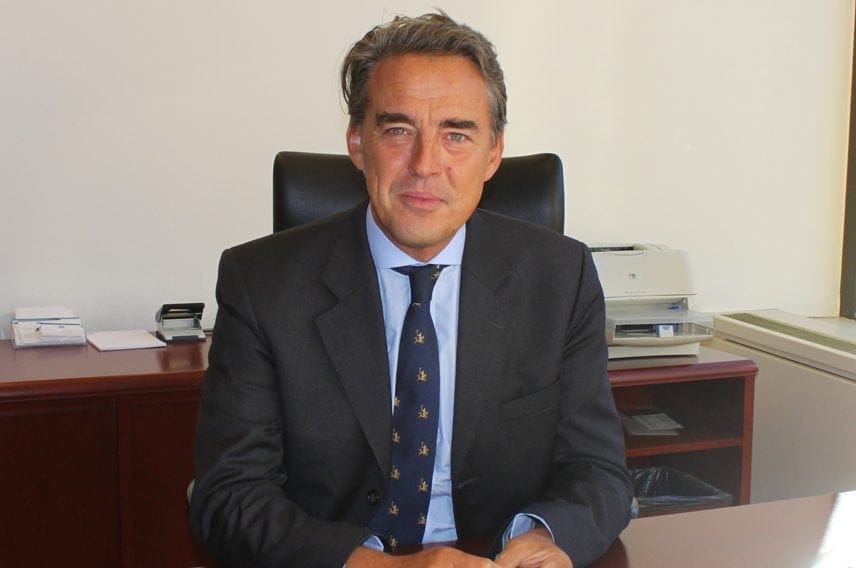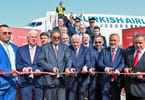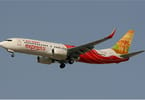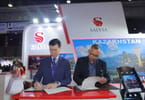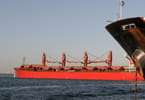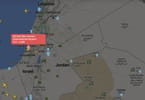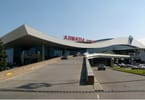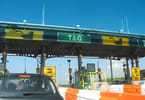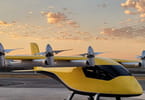Alexandre de Juniac, IATA’s Director General and CEO addressed the 36th Plenary of the European Civil Aviation Conference (ECAC) today.
Here is a transcript of his address:
Thank you for the invitation to address this Plenary Session of ECAC. Aviation is a team effort. And I commend you for providing the opportunity to draw the industry’s priorities to your attention.
Environment
Let me begin by recognizing a recent success on the environment—an area where government and industry have worked hand-in-hand.
On 27 June, the Council of ICAO completed the standards and recommended practices to support CORSIA—the Carbon Offsetting and Reduction Scheme for International Aviation. That brings critical certainty to governments and airlines on reporting requirements from January 2019.
We can all be proud of the hard work that led to the historic CORSIA agreement—particularly Europe which raised the flag early on environmental issues. But we have a few things still to do:
- We must be prepared. IATA is conducting a series of workshops around the globe to ensure that airlines are ready. States also need to be prepared. And any support from ECAC in capacity building among states will be helpful.
- We must remember that CORSIA is the agreed global economic measure. While we are trying to implement CORSIA, it is disappointing to see a number of European states looking to implement new environment taxes on top of the EU ETS.
- And we must look even further ahead. By 2050, we aim to cut net emissions to half 2005 levels. To achieve this, we crucially need Europe to follow-through with a policy framework to support the commercialization of sustainable aviation fuels in the Renewable Energy Directive.
Infrastructure
I would like to focus the majority of my remarks on infrastructure—an area of deep concern among airlines.
Airline infrastructure needs are not that complicated. We need sufficient capacity. It must be aligned with the technical requirements to meet customer demands. And it has to be affordable.
In Europe, we are facing an infrastructure crisis.
The latest Eurocontrol Barriers to Growth report tells the story. Bottom line: 160 million European fliers in 2040 will be disappointed. Why? Because the infrastructure will not be able to cope with the volume of people needing to travel. And every person that cannot fly is a lost opportunity that filters throughout the economy.
How do we deal with this? The short-term answer is two-fold:
- First, we must improve throughput of existing infrastructure with more efficient processes, like OneiD. It aims to improve efficiency and convenience using biometric identification. This vision is to facilitate passengers through airport processes with a single token—fingerprint, iris or facial recognition.
- Second, we must optimize slot coordination. That means enforcing the Worldwide Slot Guidelines (WSG) consistently at congested airports, of which there are over 100 in Europe. And it means modernizing the WSG.
To that end, we are working with ACI and slot coordinators to review the WSG. One area that I am particularly hopeful of is finding a more consistent way for airports to declare capacity. It makes no sense that some single runway airports can get 30 or more movements an hour, while others declare much less for no apparent reason.
Long-term, however, the only solution is investment in airports and air traffic management.
Airports
On the airport side, investments must be mindful of costs. The recent decision to construct Heathrow’s third runway was encouraging. But we are not convinced that the cost of the current proposal will align with the critical government requirement for no increase in costs.
I will add a note of caution on the current trend of airport privatization, which is particularly prevalent in Europe. Our members are frustrated because privatization leads to higher costs without measurable operational efficiencies.
We are not opposed to privatization, but our AGM passed a resolution encouraging governments to consult with industry and examine all available alternatives before deciding on a privatization program. And this is exactly what we are asking with respect to the proposed privatization of Group ADP. Quite frankly the possibility to lock-in a 70-year concession makes no sense for an industry as dynamic as aviation.
Airports are important national assets. The private sector may have a role in delivering much needed new capacity. But governments must recognize that:
- Airports are monopolies that need strong regulation to force competitiveness—more so when the private sector is involved, and
- Our experience with corporatization is generally more positive than with full privatization.
Airspace management
Turning to airspace issues, airline frustrations at the lack of progress on the Single European Sky (SES) are well-known. Delay figures illustrate the problem. Eurocontrol forecasts a staggering 14.3 million minutes of en-route delays in Europe this year—a 53% increase over 2017. 14.3 million minutes is about 27 years, and it’s unacceptable!
What’s the solution? I have a list!
1. Modernize the infrastructure and implement SESAR. Airlines are already paying for it, so we expect benefits
2. Reform outdated work practices so that staff are deployed when they’re required; and, where justified, recruit additional staff.
3. Empower the network manager to plan and configure the network to meet the demands of travelers.
4. Strengthen the Performance and Charging Scheme so that ANSPs not delivering agreed capacity feel real financial pain.
Let me explain in more detail.
Airlines fully fund ANSPs to deliver agreed capacity. But many ANSPs have underinvested. That helps them achieve a healthy 9.6% average EBIT, but it leaves airlines and their passengers to suffer intolerable delays. That’s why the Performance and Charging Scheme needs to be much tougher when ANSPs don’t meet agreed targets.
Bigger picture and longer-term, we want to work with governments on national airspace strategies that support the SES by modernizing airspace “bottom-up”. Already, we have signed agreements with Spain, Bulgaria, France, Italy and Poland. With SES2+ blocked for years, it’s also time to consider other options for reform including a SES3.
There is a crisis in European airspace management and airlines, passengers and European citizens expect those responsible to act with urgency!
Let’s work together, and quickly, to ensure that Europe’s airports and ANSPs are fit to support economic growth. That means sufficient capacity, alignment with what airlines need to meet customer expectations and affordable costs.
Uncertainty
My last comment is that airlines—indeed all businesses—do better with greater degrees of certainty in the business environment. Airlines are finally generating sustainable profits which is great. But with a net profit per passenger of just over $7.5 the tolerance for uncertainty is thin.
The headline uncertainty is finding agreement on Brexit conditions impacting aviation. Airlines are already selling tickets for the post-Brexit period. The EU and UK must move much faster to avoid disrupting passengers, trade and business.
Longer term, the big uncertainty is protectionism and a retreat from globalization. Aviation is the business of freedom. It delivers its best when borders are open to people and trade. Policy-makers should facilitate its success because aviation is a powerful catalyst for an even more inclusive globalization.
These are the top concerns of airlines—an industry that supports nearly 12 million European jobs, transports 880 million European travelers and drives over EUR 700 billion of European economic activity.
I look forward to working with you to grow these vital benefits is a powerful catalyst for an even more inclusive globalization,” said de Juniac.
WHAT TO TAKE AWAY FROM THIS ARTICLE:
- While we are trying to implement CORSIA, it is disappointing to see a number of European states looking to implement new environment taxes on top of the EU ETS.
- I will add a note of caution on the current trend of airport privatization, which is particularly prevalent in Europe.
- To achieve this, we crucially need Europe to follow-through with a policy framework to support the commercialization of sustainable aviation fuels in the Renewable Energy Directive.


